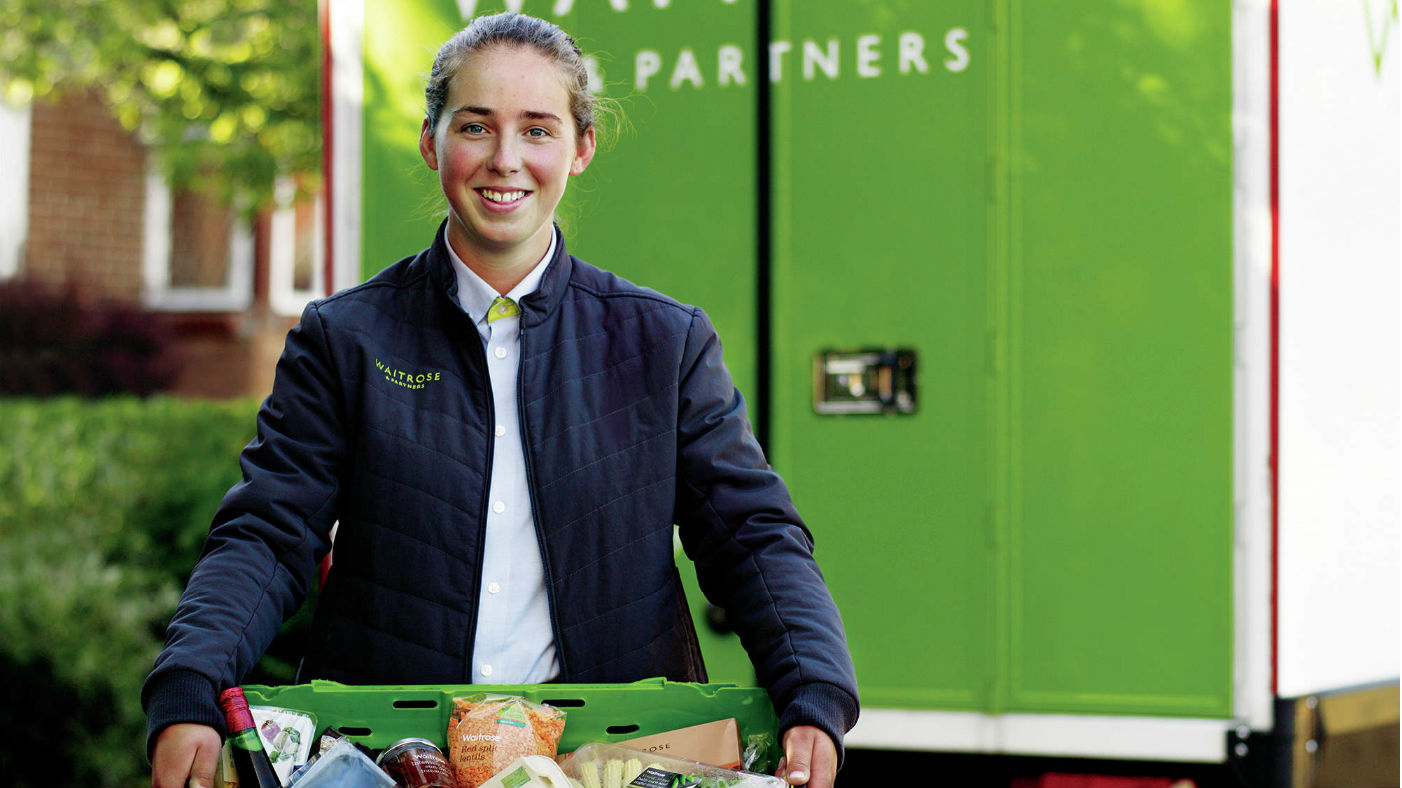Nation of online shoppers: Covid-19 sparks permanent change
Study finds that 77% now do at least some of their grocery shop online

A free daily email with the biggest news stories of the day – and the best features from TheWeek.com
You are now subscribed
Your newsletter sign-up was successful
Britain has turned into a nation of online shoppers since the coronavirus lockdown and the significant shift in behaviour is set to be a permanent one.
A study published by supermarket chain Waitrose has revealed that 77% of people now do at least some of their grocery shopping online, compared to 61% a year ago.
In its report, How Britain Shops Online, Waitrose polled 2,000 people and 60% said they shop for groceries online more frequently since the pandemic. Meanwhile, 41% cited convenience as the reason and one in five people said they hadn’t considered it before Covid-19.
The Week
Escape your echo chamber. Get the facts behind the news, plus analysis from multiple perspectives.

Sign up for The Week's Free Newsletters
From our morning news briefing to a weekly Good News Newsletter, get the best of The Week delivered directly to your inbox.
From our morning news briefing to a weekly Good News Newsletter, get the best of The Week delivered directly to your inbox.
The big change is within the over-55 age group, with numbers nearly trebling from 8% in 2019 to 23% in 2020. Last year, less than half of over-55s (47%) did some of their food shopping online and this has since increased to 74%.
In the 35-44 age group 32% now do at least one online shop a week compared to 16% in 2019.
James Bailey, Waitrose & Partners executive director, said: “Even before the Covid-19 pandemic, there are few retailers that wouldn’t have predicted the continued growth of e-commerce relative to physical shops.
“But what would have previously been a gradual upward climb in demand has - with the outbreak of Covid-19 - turned into a trajectory more reminiscent of scaling Everest.
A free daily email with the biggest news stories of the day – and the best features from TheWeek.com
“One in four of us now do a grocery shop online at least once a week - double the amount in 2019. Because online shopping quickly becomes habitual - these changes are irreversible.”

Permanent change
BBC News reported in July that online grocer Ocado predicted the switch to internet shopping has led to a “permanent redrawing” of the retail landscape.
Another report published this week by O2 Business and Retail Economics has backed up that statement with 44% of customers saying the pandemic will have a permanent impact on the way they shop.
Meanwhile, 47% said they will increase the number of times they shop online and 34% sourced essential and non-essential items from online retailers during lockdown.
Richard Lim, CEO of Retail Economics, said: “The impact of Covid-19 has re-wired the customer journey, leaving many retailers scrambling to assess the impact as they attempt to realign their proposition to meet a new normal.
“We’ve already witnessed a significant shift towards online and it’s inevitable that some of these behaviours will become permanent, with digital playing a much more important role. Many of these consumers are shopping for goods online for the first time, overcoming the barriers of setting up online accounts, entering payment details and gaining trust.
“The new normal will involve a step-change in the integration of digital technologies and retailers are assessing what this means for the number of stores, where they should invest and the potential partnerships that could be formed.”
Mike Starling is the former digital features editor at The Week. He started his career in 2001 in Gloucestershire as a sports reporter and sub-editor and has held various roles as a writer and editor at news, travel and B2B publications. He has spoken at a number of sports business conferences and also worked as a consultant creating sports travel content for tourism boards. International experience includes spells living and working in Dubai, UAE; Brisbane, Australia; and Beirut, Lebanon.